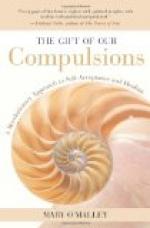She seemed to have very little power to bear disappointment. Her feelings were very tender, and her sensibilities great. Disappointment, therefore, brought the ready tear to her eye; and solicitous affection, if possible, removed the pressure which had caused it. But some of the later revelations of her life indicated rare ability to endure disappointment, and to cherish hope even in the audience-chamber of death. Thus will it appear in the end that her heart was full of Christian confidence and holy trust.
In the course of June, 1850, it was observed by her friends that her health was manifestly declining. She was advised to leave her employment at once, and seek in relaxation and change of scene the reestablishment of her health and the restoration of her accustomed vigor. Accordingly accompanied by her brother, she spent some three weeks of the month of July in various parts of Maine; but health did not come back to her. Disease was too deeply seated to be beguiled away.
She returned to her home but to languish and die. When the news of her mortal illness reached the Sabbath school, in which she had now been a faithful and beloved teacher for about a year, it produced the most intense interest and solicitude. All felt that a dearly beloved sister had become the victim of the destroyer. That, however, which was a source of unmingled grief in the beginning, became a sanctifying power in the end.
When first informed that it was feared her disease would terminate fatally, she betrayed the deepest emotion, with scarcely the utterance of a word. Her natural sensibility made the weight upon her spirits seem insupportable. But when the first shock was past and her powers had had time to rally, she was found equal to the trial that awaited her. That truth which she had long loved, and which had produced very little of that Christian display by which the world judges, had wrought silently but powerfully upon her understanding and her heart. It had begotten hopes in a naturally hopeful spirit, stronger than death itself.
When her pastor from time to time spoke to her of the labors and sacrifices of Christ, of the love of the Father and of the blessedness of immortality, leading her sometimes to meditate upon the highest forms of Christian truth, the smile of satisfaction that played upon her countenance, showed not only that her powers were equal to the effort, but that her heart was satisfied with its fruit.
Her disease, which was consumption, was of a very painful character, especially as regarded difficulty of breathing. She was compelled to sit up continually, almost to the hour of her death. Yet in the moment of expected dissolution, so generous was her nature, her heart was yearning for blessings on others rather than herself. At one time just before her death she requested her pastor to remember in his prayer an absent sister, that she might recover from a critical illness; and in one of his last interviews with her,




